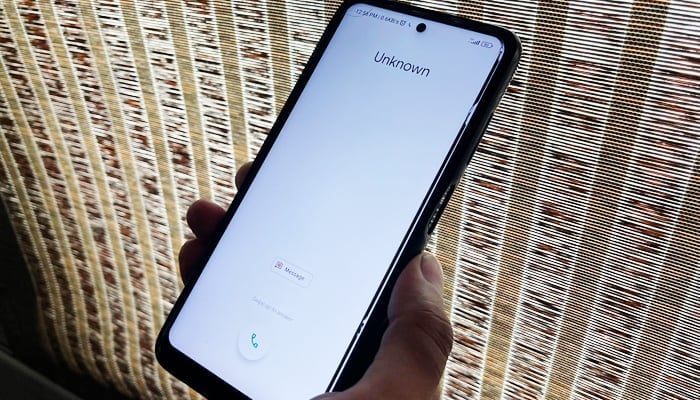HRCP blasts 'unconstitutional' order allowing phone tapping
"It follows on heels of IHC order stating that state officials are not authorised to surveil citizens," says HRCP
The Human Rights Commission of Pakistan (HRCP) has lambasted the government over allowing the country’s top spy agency to tap calls of citizens, terming it unconstitutional.
In a statement issued on Wednesday, the commission said it was “deeply concerned” by the recent "unconstitutional notification" issued by the federal government granting officers of the Inter-Services Intelligence (ISI) freedom to intercept and trace the calls of nationals.
Through a notification on Monday, the government approved permission for the intelligence agency to intercept and trace calls and messages, in the apprehension of an offence against national security. The order was slammed by the opposition as well as other people concerned about citizens' privacy and basic rights enshrined in the constitution.
The federal cabinet approved the relevant circular allowing a designated officer of the ISI to carry out the tracing of calls under Section 54 of the Telecommunication (Re-organisation) Act 1996. However, the officer nominated by the agency cannot be of less than grade 18.
The said section of the Telecommunications Act allows the federal government to authorise any person or persons to intercept calls and messages or to trace calls through any telecommunication system in the interest of national security.
It also states that the government will have preference and priority in the telecommunication system over any licensee for the defence or security of the country against any foreign aggression.
"The federal government in the interest of national security and in the apprehension of any offence is pleased to authorise the officers [...] to be nominated from time to time by ISI to intercept calls and messages or to trace calls through any communication system," read the notification issued by the Ministry of Information.
Meanwhile, the HRCP termed notification a “flagrant violation of citizens’ constitutionally protected rights to liberty, dignity and privacy under Articles 9, 14 and 19”.
“It also contravenes the spirit of the apex court’s ruling in the Mohtarma Benazir Bhutto case,” it added.
While claiming that the measure would be used against political opponents, the human rights body pointed towards the government’s acting in violation of a high court order.
“It is no coincidence that this follows on the heels of an Islamabad High Court order stating that state officials are not authorised to surveil citizens.
"Given the poor track record of governments and intelligence agencies alike, this measure will invariably be used to clamp down on political dissent through means of blackmail, harassment and intimidation,” it stated.
The HRCP demanded the government to urgently introduce “watertight” checks and balances to all surveillance practices— "at a minimum as prescribed in the Investigation for Fair Trial Act 2013”.
-
Security forces gun down 30 terrorists in multiple IBOs in KP: ISPR
-
MQM-P calls for new province in Sindh
-
US report validates Pakistan military edge over India: PM
-
Banned TTP poses serious threat to Pakistan security: UNSC panel
-
CM Afridi clarifies remarks on by-poll after ECP requests army deployment
-
Dubai sees 3.2m Pakistani passengers in 2025 as airport sets new milestone
-
Security forces kill 23 Indian proxy terrorists in KP's Kurram
-
Pakistan to construct island to boost oil exploration: report












